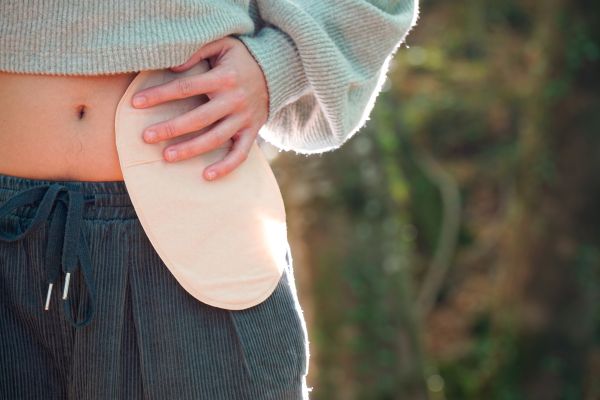When a colorectal cancer specialist recommends that you need rectal cancer surgery, they may inform you that you need a stoma – a small opening on your abdomen that lets waste leave your body without passing through the section of your intestine that was operated on. This waste is then collected in a pouch or stoma bag.
In many cases, patients only have to live with a stoma until the affected area can be joined back together. But there are other instances where the stoma will be permanent even if you are cancer-free.
Living with a permanent stoma in Singapore is not without its hurdles, but it is still possible to adapt and lead a fulfilling life. Here is how we can cope better.
What Challenges Do We Face When We Have a Permanent Stoma?
Let us first look at some common difficulties we might encounter after rectal cancer surgery:
Physical and Lifestyle Challenges
Managing the Stoma Bag
It can take time for anyone to adjust to daily life with a stoma and pouch, as it requires regular cleaning and changing. You may also have to bring stoma care supplies with you in case of emergencies, such as leaks.
You May Not Do Certain Activities
Some activities may be off-limits to you if you were fond of them before you were made to wear a stoma. These can include contact sports such as boxing, which can injure your abdomen.
Hurdles While Travelling
Travelling by car, sea, or air, all requires much planning, such as ensuring you have enough stoma care equipment. You may also face issues during security checks due to the pouch without a doctor’s note explaining your situation.
Psychological Challenges
Body Image Issues
Adapting to your new appearance can be difficult, especially when the bag is always there to remind you of your rectal cancer surgery and all the changes that come with it.
Fear of Intimacy
With this blow to our confidence in our body image can come a fear of having intimate relationships with partners, as they may react poorly to our stoma bag.
Social Anxiety and Depression
We may also be afraid of going out while worrying about leaks and foul odours and how people might perceive the stoma. The drastic changes in our appearance and routine can also lead to depression.
Making Peace With Your Stoma
Accepting that your stoma is now a part of your life is a significant step in the healing and coping process.
Education
Educate yourself all about stoma care so you can be more vigilant against leaks and other issues. Your colorectal cancer specialist and others in your care team can walk you through this aspect of living with a stoma during follow-up appointments after your cancer surgery.
Positive Affirmation
Think of the positives! Your rectal cancer surgery was a success. With the proper precautions, you can still do many sports, travel where you want, and eat many delicious foods – with your doctor’s guidance, of course. And you can still find a partner who accepts all of you.
Experiment With Clothes
Having a stoma does not mean you cannot be fashionable. As you grow accustomed to your pouch over time, you can find ways to keep it from being too prominent, such as by choosing looser-fitting clothes.
Seek Out a Support Group In Singapore
Since colorectal cancer is a common cancer in Singapore, there are many people here who wear stoma bags. That means there are local communities that can provide support and resources for cancer survivors and patients who are still about to undergo rectal cancer surgery, such as the Ostomy Association of Singapore.
You Can Still Live Life to the Fullest With a Stoma
Adjusting to a stoma bag is no doubt challenging at first. But by embracing our new appearance and the lifestyle changes that come with it, we can still live a fulfilling life.
We are never alone on this journey. If we look around us, we will find that there are others who have walked this path and can help us, too. So do reach out to your medical provider for guidance. They can work with you through this transition.
References:
- https://www.healthdirect.gov.au/living-with-a-stoma
- https://www.cancerresearchuk.org/about-cancer/anal-cancer/living-with/coping-with-colostomy
- https://www.mayoclinic.org/diseases-conditions/colon-cancer/in-depth/ostomy/art-20045825
- https://www.homage.sg/health/stoma/
- https://www.singhealth.com.sg/patient-care/conditions-treatments/stoma
- https://www.cancer.org/cancer/managing-cancer/treatment-types/surgery/ostomies/stomas-or-ostomies/sports-and-exercise.html
- https://www.cancer.org/cancer/managing-cancer/treatment-types/surgery/ostomies/stomas-or-ostomies/sex.html
- https://oas.org.sg
